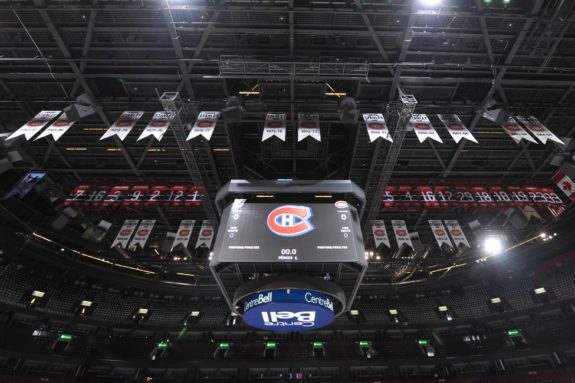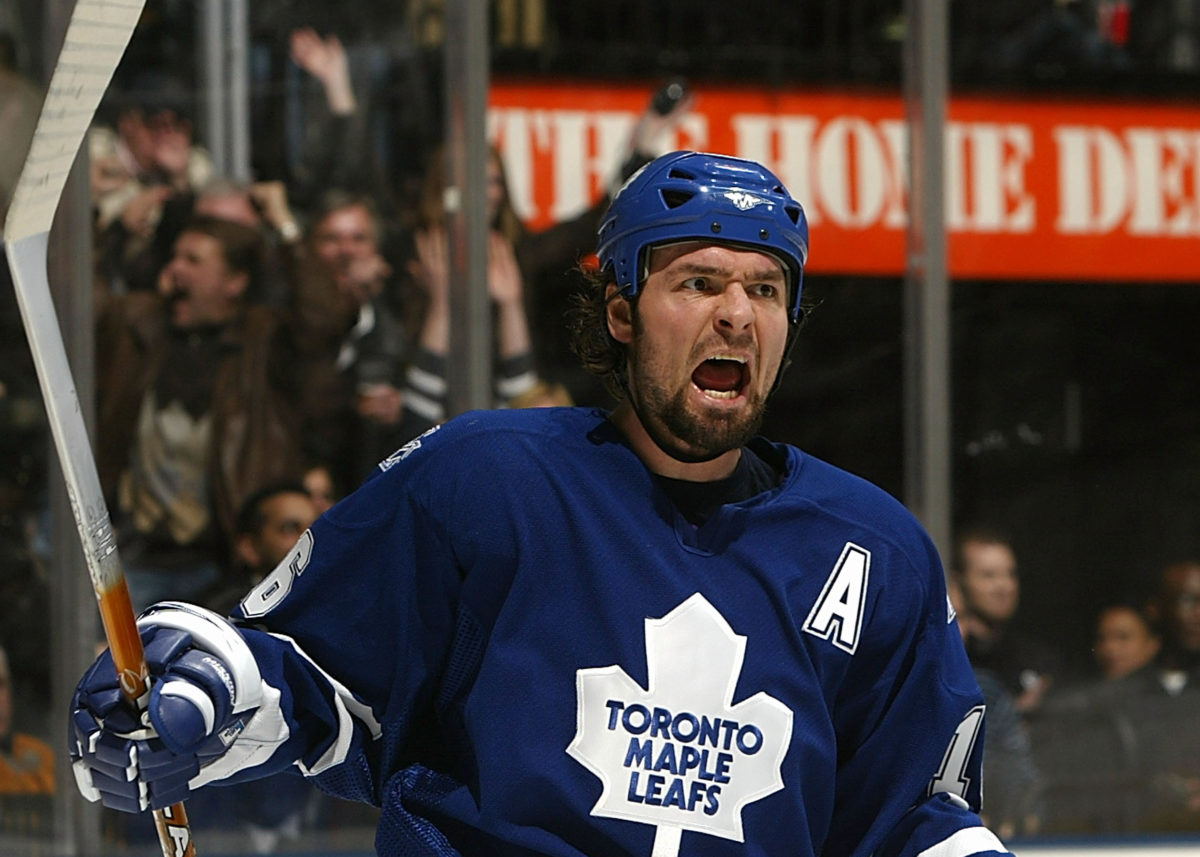Many hockey fans remember winger Darcy Tucker for his days as a Toronto Maple Leaf. He had spent the most time with the organization and played a significant role along with other forwards such as Mats Sundin and Tie Domi among others.
However, the Leafs were just one of four clubs Tucker played for. He also suited up for the Montreal Canadiens, Colorado Avalanche, and Tampa Bay Lightning. He might not be as recognized during his days in Tampa, but it was a significant part of his hockey journey that contributed to his overall success.
Coming to the Bay
Tucker was drafted by the Canadiens as a sixth-round pick (151st overall) in the 1993 NHL Draft. He came off a stellar sophomore campaign with the Kamloops Blazers of the Western Hockey League (WHL) where he tallied 31 goals and 58 assists for 89 points in 67 games. He posted two more seasons with the Blazers, notching 140 and 137 points respectively, before officially joining the Canadiens’ system in the 1995-96 campaign.
Tucker spent most of 1995-96 with Montreal’s then-AHL affiliate Fredericton Canadiens. He had a solid campaign, chalking up 29 goals and 64 assists for 93 points in 74 games. Fredericton qualified for the playoffs that year, and Tucker notched 10 points (7 goals and 3 assists) in 7 contests. Montreal did recall Tucker for three games though that season, going pointless.

Tucker’s offensive threat did not transition well to the NHL in his first few seasons. He posted the following as a Hab:
- 1995-96: 0 points in 3 games
- 1996-97: 7 goals and 13 assists for 20 points in 73 games
- 1997-98: 1 goal and 5 assists for 6 points in 39 games
Canadiens management was willing to part ways with the young winger and dealt him to the Lightning in the middle of the 1997-98 campaign. The trade consisted of Tucker, Stephane Richer, and David Wilkie heading to Tampa Bay for Igor Ulanov, Patrick Poulin, and Mick Vukota. The Bolts hoped they would be able to provide the change of scenery Tucker needed to get his game on track.
Molding His Game
Tucker joined an interesting cast around him in Tampa when he first arrived. Some of his teammates included Mikael Renberg, Daymond Langkow, and Paul Ysebaert. Some other players on the roster then were Dino Ciccarelli, Roman Hamrlik, and Pavel Kubina to name a few. It did not take long for the new setting to impact Tucker’s game. While only suiting up for the Lightning in 35 games in 1997-98, he posted 6 goals and 8 assists for 14 points.
Tucker’s game grew even more so in the following two seasons. He became the leading scorer in 1998-99 with 43 points (21 goals and 22 assists in 82 games). He became a leading offensive force, helping out new Lightning members who arrived in Wendel Clark and a rookie Vincent Lecavalier, who was selected first overall by the Bolts in the 1998 NHL Draft.

Tucker also played the rough style of game that hockey fans remember him for. He accumulated 176 penalty minutes in 1998-99. He had a way of getting under opponent players’ skin and received much attention from certain enforcers. In 1999-00, through 50 games, Tucker accrued 108 penalties. He also tallied 14 goals and 20 assists for 34 points in 50 games.
Established Up North
As promising as things looked for Tucker with the Lightning, his time in Tampa ended in 2000. Tucker was traded to Toronto for forward Mike Johnson and defenseman Marek Posmyk. Tucker went on to play parts of eight seasons with the Leafs. He accrued the following while playing there:
- 1999-00: 7 goals and 10 assists for 17 points in 27 games
- 2000-01: 16 goals and 21 assists for 37 points in 82 games
- 2001-02: 24 goals and 35 assists for 59 points in 77 games
- 2002-03: 10 goals and 26 assists for 36 points in 77 games
- 2003-04: 21 goals and 11 assists for 32 points in 64 games
- 2005-06: 28 goals and 33 assists for 61 points in 74 games
- 2006-07: 24 goals and 19 assists for 43 points in 56 games
- 2007-08: 18 goals and 16 assists for 34 points in 74 games
He became a key force for Toronto during his time there; playing with some solid talents as his teammates such as Sundin, Tomas Kaberle, Bryan McCabe, and Gary Roberts among others. He kept up his aggressive play style as well, accruing more than 1400 penalty minutes in his career overall.

Tucker was another spoke on the wheel that helped make the Leafs car roll, and the results reflected that. During the eight seasons Tucker represented the Original Six franchise, they made the postseason five times. In the playoffs, Tucker posted 10 goals and 11 assists for 21 points in 58 games for them. He also accumulated 79 penalty minutes as well during those runs with Toronto.
A Stellar Pro Journey
After his time in Toronto came to an end following the 2007-08 season, Tucker suited up for two campaigns with the Avalanche in Denver. His offensive production dropped from his previous stints in the league. He notched 16 points in 63 games in 2008-09 (8 goals and 8 assists) along with 24 points in 71 games in 2009-10 (10 goals and 14 assists). Tucker then announced his retirement in 2010.
Tucker may mostly be remembered for his days in Ontario, but the Lightning was where his offensive game was first reached. His growth and development took place at the Bay; and he would have been a nice complementary piece on a Tampa team that had players in Lecavalier, Brad Richards, and Martin St. Louis among others, had he stayed. He might not be remembered for his time as a Bolt, but his time there helped shape the type of talent he was for the rest of his career.